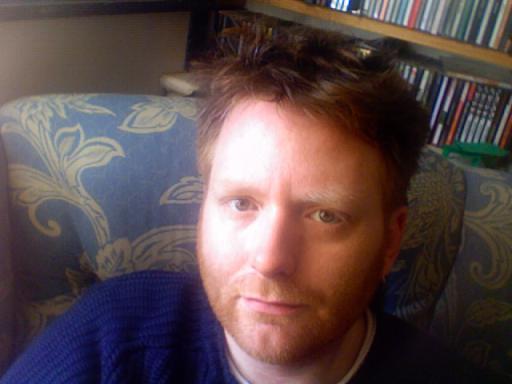The mantle of ‘Poet’ is a strange and heavy garment, one that can really only be conferred on a person by others. I tell people I write poetry but I am still wary of openly calling myself a poet; afraid, I think, that such boldness may drive the urge to write away. The only place I have ever brazenly admitted to being a poet was in the job centre, during the years after college that I spent signing on – it unnerved them and gave me time to look for work I wanted to do.
I have been writing since childhood. I was brought up by two poet parents, so I have been exposed to poetry and its cadences, rhythms and subtle changes for years. Both my parents put poetry in my way as a child and – as many children do – I wrote earnestly and eagerly. Unlike most children, I continued to do so. It was a line of communication with my parents. Certainly they both talked to me about my writing and, later, criticized it. When I was 21, I told my father I wanted to write for a living. He asked me – joking, I’m sure – why didn’t I become an accountant instead and keep him in the style he’d like to become accustomed to. It was, by that time, a little too late – I’d got the taste for writing.
I was subsumed in poetry, art and landscape, so I was shown the best side of bohemia as a child. I grew up in Cider with Rosie country rather than London. Robert Graves described my father as “incorrigibly urban”, but he and my mother raised me to be incorrigibly rural – “piping down the valleys wild”. I had a very Blakean, innocent childhood between birth and the age of nine.
I’m lucky, then, that I can tap into that and into the rhythms of verse that I was unavoidably in contact with as a child, as I rely heavily on Damascene inspiration to write. I am not at all keen on sitting down and deciding to write ‘a Poem’. There has to be a spark of life in the capturing of art – exercise and escape are required. This can mean that many months will go by without a thing worth speaking about leaving my pen.
That’s not to say that I don’t write every day. I do. Every day I sit for ten to thirty minutes and write a stream of consciousness. Sometimes my morning stream of consciousness pen-and-head clearences get stored in the old tea box I keep writings in, more often they are disposed of. I will, at some point, dispose of all drafts, abortive poems and notes. If I’m ever studied in schools or Universities, I have no wish leave too many signposts for students. The best path into a poem’s deeper structure is the one you find for yourself, not the one you’re dragged to by the nose.
I believe it’s essential to keep the pen and the subconscious oiled – this is why I agreed to write this piece for WOPOWRIMO. You may not get more than one lasting poem out of the process of writing something every day, but the practice will more than likely make it easier to write a great poem when the inspiration comes in the future. Sometimes commissions can open the floodgates – I had one of my most productive years of writing last year after someone commissioned me to respond in verse to her exhibition and it turned out to be on a subject I had been considering already. That happy confluence lead to all sort of new rivulets of ideas. Since November, the spring has dried up. So, like a nomad, I move on and live and hope I find another spring.
I know I can be better at this poetry-writing lark, that each poem has to be better than the last. If one relies on inspiration alone, one becomes lazy. If one writes purely for the sake of writing, one can become stale. It’s a hard slog getting oneself into the position where one might be able to write poetry that is powerful, accessible and which packs a hell of a punch. But it’s worth trying. It’s always worth trying.

Sorry, the comment form is closed at this time.